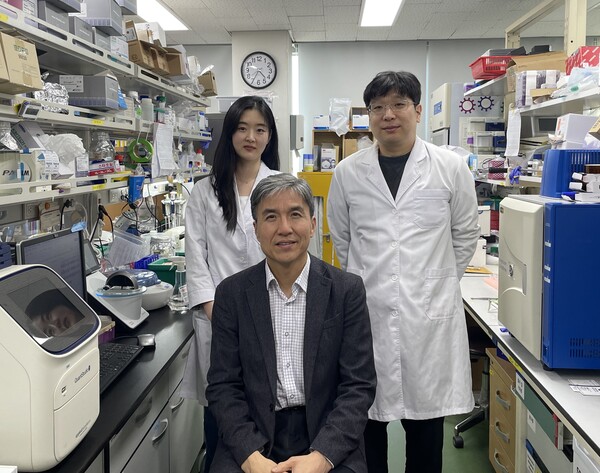Korea Advanced Institute of Science and Technology (KAIST) researchers have discovered a critical factor that hinders the effectiveness of immunotherapy in lung cancer, potentially paving the way for a new treatment strategy that could improve patient outcomes in cases previously unresponsive to immune checkpoint inhibitors.

The research team, led by Professor Cho Kwang-hyun of the Department of Bio and Brain Engineering, has identified a novel gene regulator, DDX54, which plays a key role in cancer cells’ ability to evade immune responses.
Suppressing this factor significantly increased immune cell infiltration into tumor tissues, thereby boosting the efficacy of immune checkpoint blockade therapies.
Immune checkpoint inhibitors such as anti-PD-1 and anti-PD-L1 antibodies have revolutionized cancer treatment by helping immune cells more effectively attack tumors.
However, the response rate remains relatively low—benefiting fewer than 20 percent of patients—highlighting the urgent need for new treatment strategies or combination approaches to improve therapeutic outcomes.
To date, tumor mutational burden (TMB) has been recognized by the U.S. FDA as a biomarker to identify likely responders to immunotherapy. Tumors with high levels of genetic mutations are considered more likely to respond.
Still, many tumors still fail to respond despite high TMB levels, particularly those that exhibit immune-desert characteristics, where immune cell infiltration into the tumor is severely limited.
Professor Cho’s team used a systems biology approach to analyze transcriptomic and genomic data from lung cancer patients with immunotherapy resistance.
Through this analysis, they identified DDX54 as a master regulator that enables immune evasion. When the team inhibited DDX54 in syngeneic mouse models of lung cancer, they observed a substantial increase in the infiltration of cytotoxic immune cells such as T cells and NK cells, along with a markedly improved response to immune checkpoint inhibitors.
Additional single-cell and spatial transcriptomics analyses showed that blocking DDX54 promotes the differentiation of effector and memory T cells that fight tumors while suppressing regulatory T cells and exhausted T cells that are associated with immune suppression and cancer progression.
Mechanistically, the inhibition of DDX54 in lung cancer cells deactivated key signaling pathways—namely, JAK-STAT, MYC, and NF-κB—which in turn downregulated immune evasion-related proteins CD38 and CD47.
This suppression also reduced the infiltration of circulating monocytes that support tumor growth while promoting the differentiation of M1 macrophages known for their antitumor activity.
“This study marks the first discovery of a gene regulator that drives immune evasion in lung cancer,” Professor Cho said. “By targeting DDX54, we can potentially convert tumors that are resistant to immunotherapy into ones that respond to treatment, offering a promising new therapeutic strategy.”
The technology has been transferred to BioRevert Inc., a KAIST faculty-led biotech venture, which plans to further develop the therapy as a companion treatment for immunotherapy. Clinical trials are expected to begin by 2028.
The results of the trial were published in the Proceedings of the National Academy of Sciences of the United States of America.
Related articles
- KAIST researchers uncover mechanism behind rapid replication of Covid-19
- Researchers find ways to diagnose lung cancer mutations with blood droplets
- KAIST's unpowered medical oxygen generator picked as Top 20 Dyson Award
- Experimental cancer drug targets immune cells to shrink hard-to-treat tumors in mice: study
- [Interview] Cracking cancer’s cold cases: the startup that may have found immunotherapy’s blind spot

